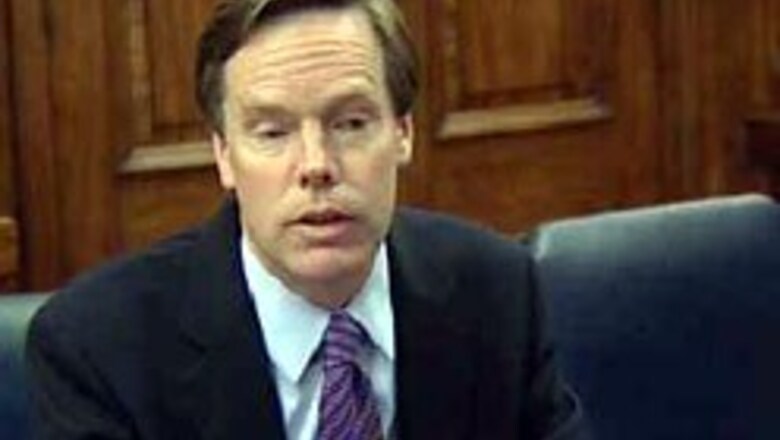
views
Washington: The US considers the civilian nuclear deal with India its “top concern, top objective and top legislative priority” and is determined to move forward with their strategic relationship in an ambitious way.
“We hope very much the Senate will be able to take up and vote on the nuclear deal in the lame duck session" when the outgoing Congress resumes after the November 7 mid-term poll, a senior US official said on Friday, describing the nuclear deal as the symbolic centre of the new strategic ties between the two countries.
However, there was more to their relationship than the nuclear deal, Undersecretary of State Nick Burns told the Washington-based Indian media announcing plans to lead a large multi-interest delegation to New Delhi next month.
"We have a blueprint and a framework in the July 18, 2005 and March 2, 2006 joint statements of (US) President George W Bush and Prime Minister Manmohan Singh," noting that the two leaders had agreed on 10-12 major initiatives like science and technology, agriculture and CEOs forum.
The US official would not say whether his visit to India would be before or after the lame duck session, but reiterated that there was wide bipartisan support for the deal, which he said was in the best interests of India and the US.
Besides meeting India’s new Foreign Secretary Shivshankar Menon and his predecessor Shyam Saran, designated special envoy for the nuclear deal, Burns said his team intended to try and augment the anti-terrorism cooperation to a greater level.
He called it the beginning of efforts to put their best foot forward to fulfil the direction given by the political leadership.
Asked if North Korea's nuclear test would affect the nuclear deal as it had raised new concerns about proliferation, Burns replied with an emphatic "not at all".
PAGE_BREAK
There was no comparison between the two. While India is a democratic law abiding country at the centre of the international systems, Pyongyang with its unwise behaviour had now fully exited from the non-proliferation regime, he said.
Asked why Pakistan's name did not figure in the US list of proliferating countries along with Syria and Iran, Burns said: "The role of Pakistan through A.Q. Khan network is very well known. We do not walk away from that but the spotlight should be on North Korea.
"Pakistan as a friend and an ally is now doing everything they can to help us in combating proliferation," he added.
Asked how the Congress would be able to accomplish what it could not do in three months, Burns referred to its very busy legislative calendar in an election year and said: "We have to have some sympathy for the Congressional schedule."
To a question relating to evidence presented by India on Pakistan's role in the Mumbai blasts, he said while it was not proper for him to share the information, the US has a self-interest to help India to prevent terrorism.
As terrorist threat against US and its friends remained one of Washington's greatest challenges, it intended to try and augment anti-terrorism cooperation to a greater level with India, which had been "unfortunately and tragically" a victim of terror.
Burns said he had spoken to Menon a number of times about bilateral matters as also about regional issues like Sri Lanka, Napal and India-Pakistan relations.
Asked if Washington was "irritated" by media reports that India had voted in favour of Venezuela for the Latin American non-permanent seat in the UN Security Council, Burns replied with an emphatic "no".
The US had excellent relations with India and nothing had changed in the last few months. "In any case the two were sovereign nations with their own views on issues and they could have differences over a 100 matters if not a thousand."

















Comments
0 comment